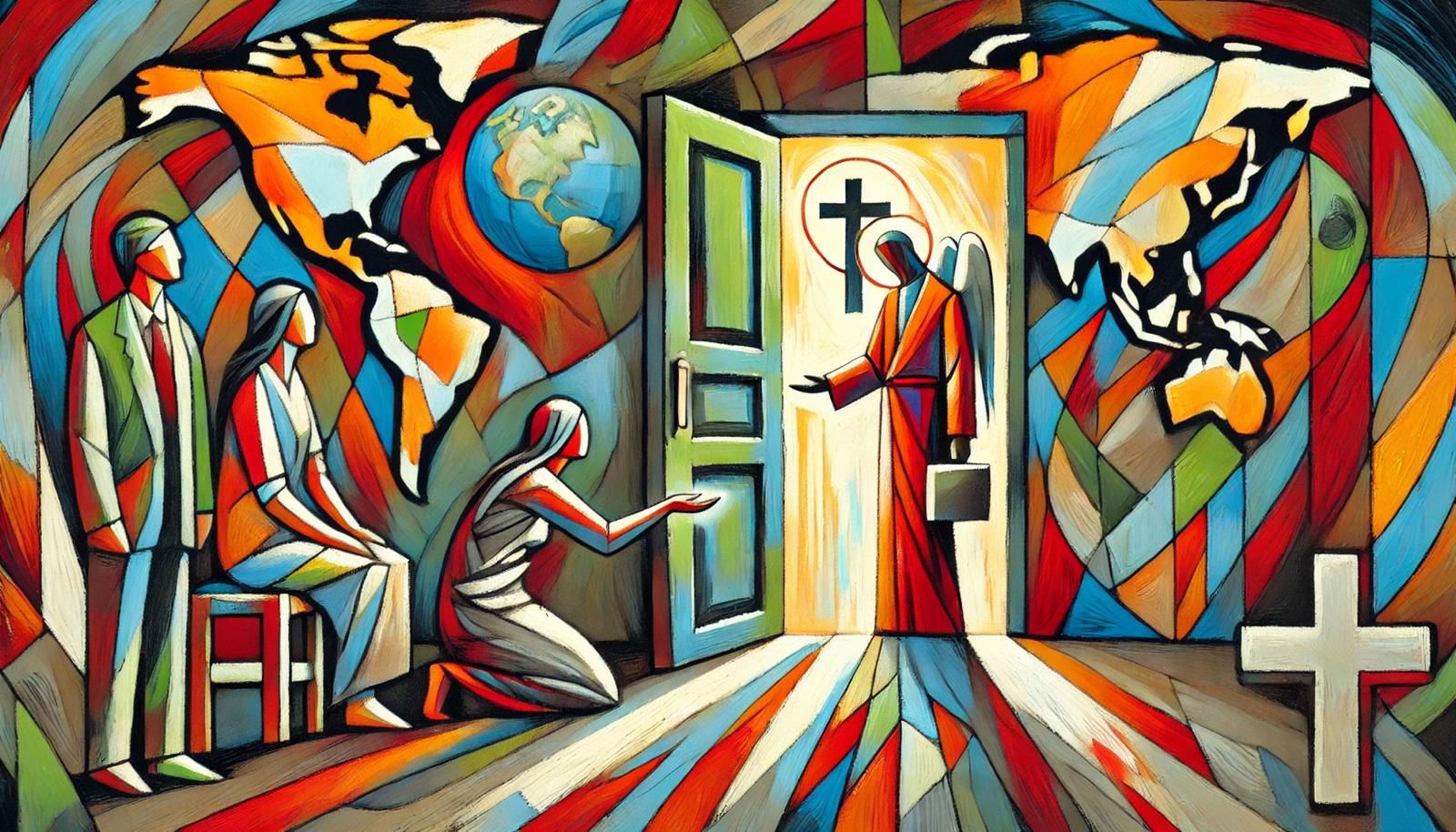
Special spazio + spadoni Missionary October: Mercy, Gateway to the Mission
When you let the mission narrative run its course, it’s almost impossible not to get caught up in it
At first curiosity, then fascination and again wonder, eventually an endless series of questions that interrogate life and its present, choices and its future. Something unsettling that appeals to each person’s depth.
A first conviction is immediately made clear: mission is not for the superficial. Perhaps this is precisely the strongest provocation that today poverty, injustice, and violence deliver to a reality where it is difficult to leave room for the heart, where social and economic concerns try to obscure the universe of coexistence and reduce every relationship to profit, gain, and personal satisfaction.
The call to depth leads immediately to that capacity of the heart we call mercy.
It is precisely mercy that is the door to mission: this second conviction leaves room for the whole “doing” of charity, which is not immediately a work, a structure, a project, but an authentic, free and gratuitous relationship, connoted theologically in the very mystery of God as the one who gives meaning to life.
Nothing then is foreign to mercy, for everything contributes to giving quality to the life of man destitute and rich, capable and in distress, secure and marked by precariousness. Any reduction or substitute deludes the possibility of human salvation that relies on trials of strength and courage destined to wear out over time. Mercy, this may be the third conviction, brings the person to a mature faith. It gives face to that “missionary disciple” whom Pope Francis continually evokes as a figure of the Christian of all time, as an embodiment of the believer today. And when a work of mercy touches the flesh it overcomes all resistance, all modesty, and leaves behind the very fragrance of God.
Along the paths of mission
Thus, the link between mission and mercy is inseparable; much more these two dimensions of life reveal the true face of the Christian community and enable it to put itself at the service of the Gospel without conditions and beyond its own capabilities. We belong to the mission.
When our eyes see, our hands can clasp others, and our feet walk the paths of missions, then all this produces a whirlwind and makes us rediscover the beauty of humanity and its history, the responsibility that belongs to us to guard the common good, the life of the least that overcomes every temptation of selfishness. A look, a hug, a word become signs of responsibility; a smile, a pat on the back, a stretch of road together are undisputed riches everywhere in the world.
Instruments of mercy
We are instruments of mercy. To the extent that we know how to receive the gift we can become dispensers of it. To the extent that we are aware of the need we can intercept the cry of those around us.
And it is mercy that makes the difference between the abundance of possibility and the supply of the necessary. The icon of that old woman in the Gospel who “gave all she had to live” is not a prestige ornament to be looked at from afar, but an appeal to a merciful life. This is the fourth conviction that allows us to babble the experience of a “new humanism,” to make the exodus from works of mercy to a merciful heart.
The very narrative entrusts us with this possibility. The fact that someone lives the convictions we have listed on his skin and wears them in the flesh convinces more and more that missionary experience can only enrich each person and communities. It is not just a matter of implementing projects, of giving space to a solidarity capable of alleviating human suffering, but of inhabiting the demand for meaning that all kinds of poverty provoke with respect to the fullness of life. In this space, mercy has the whole dynamic of mission.
It is a provocation, something that broadens horizons, that makes the breath of faith even deeper. It is a wager to be played with oneself in the light of a narrative that, in the interweaving of existence and faith, gives life back to those who believe that it is worthwhile to make their neighbor a reason for living and to this hope they entrust their time.
Source
- “Popoli e Missione” n.4/aprile 2016, pp.58-59
Image
- Digitally created image by spazio+spadoni
